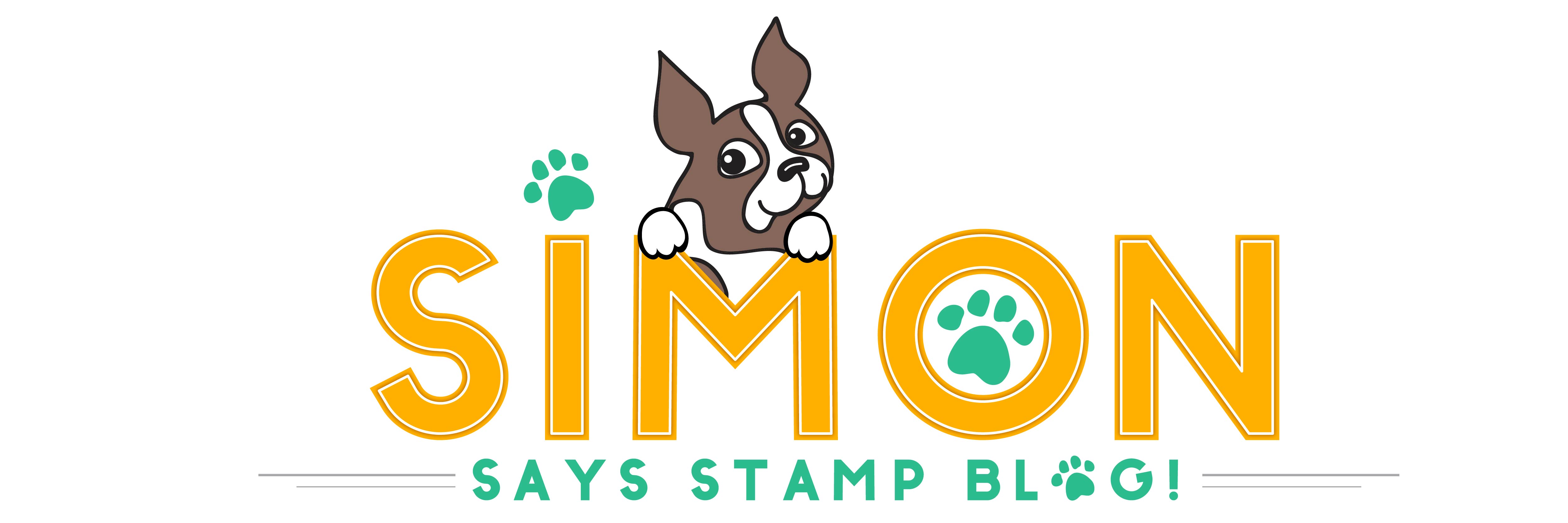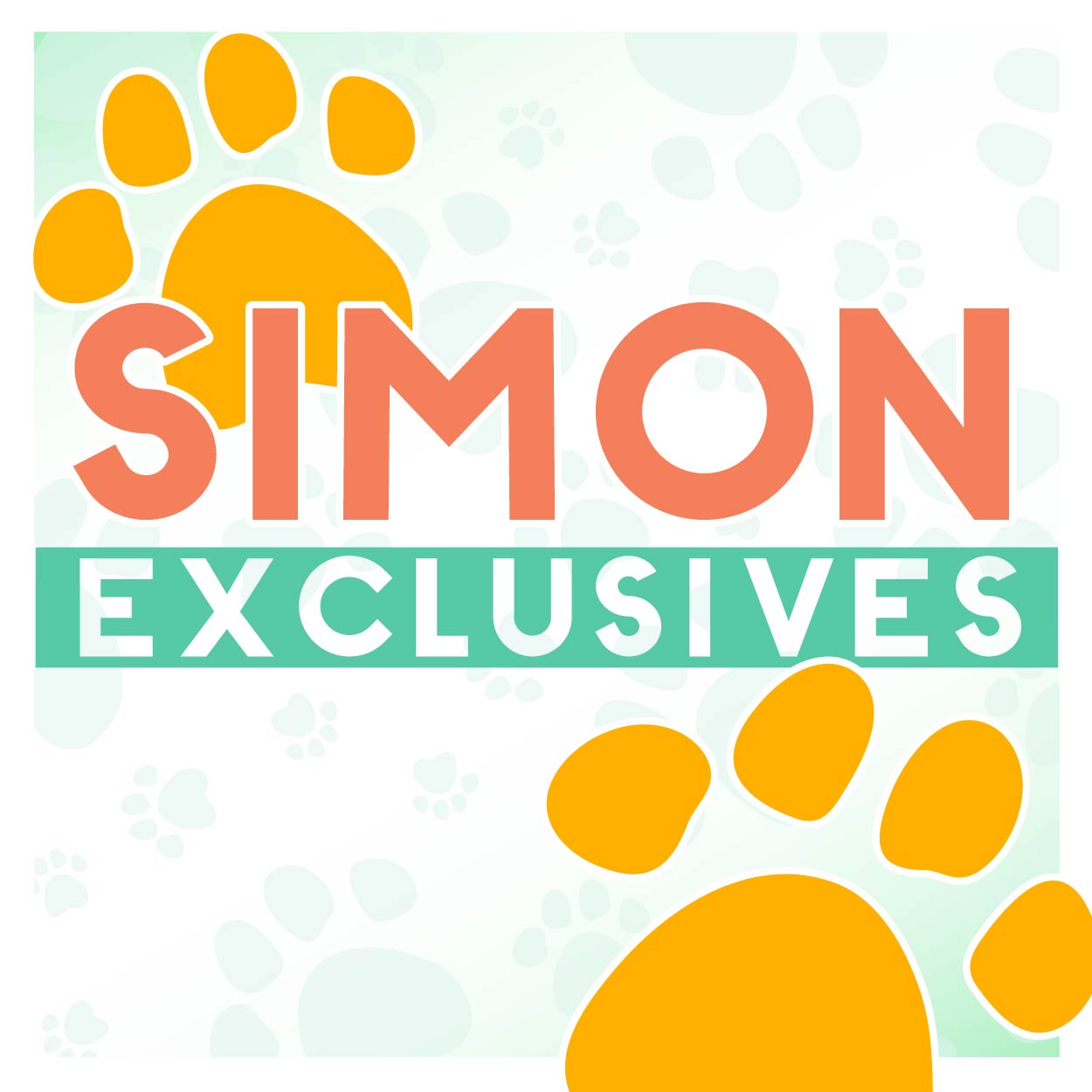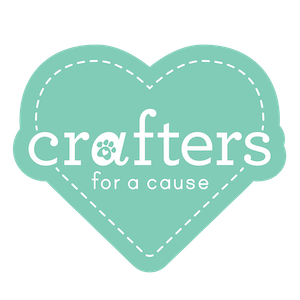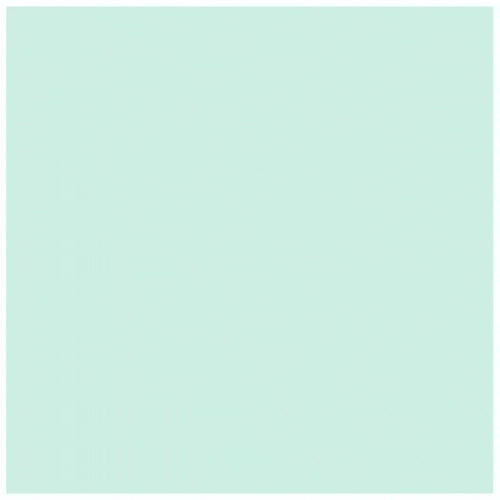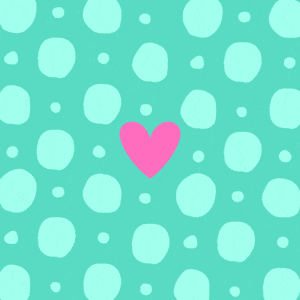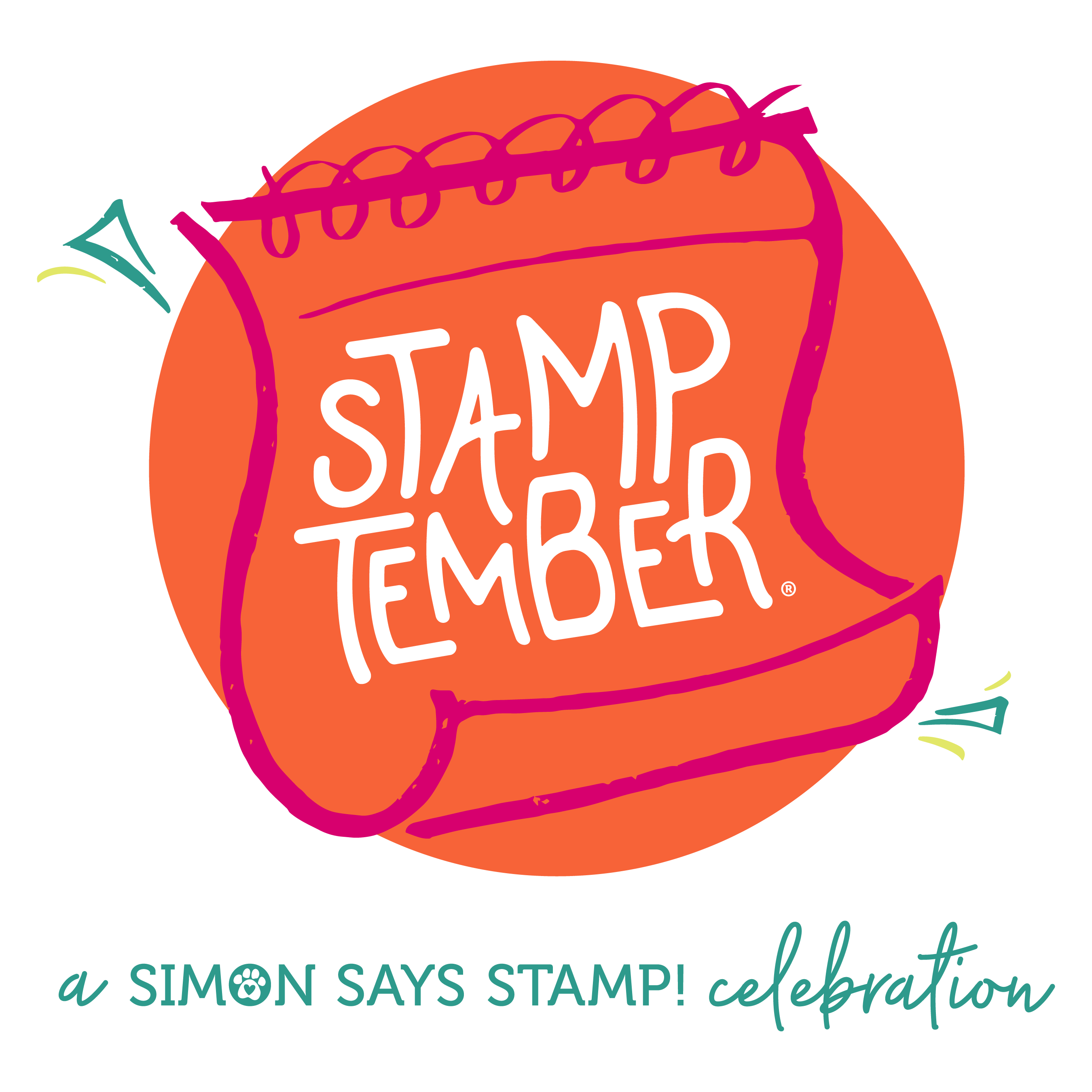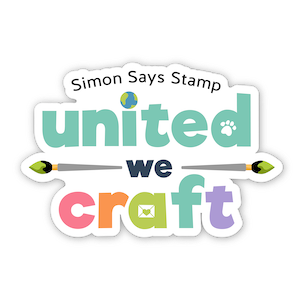Copic vs. Stencil Coloring – Which One’s for You? Yippee for Yana
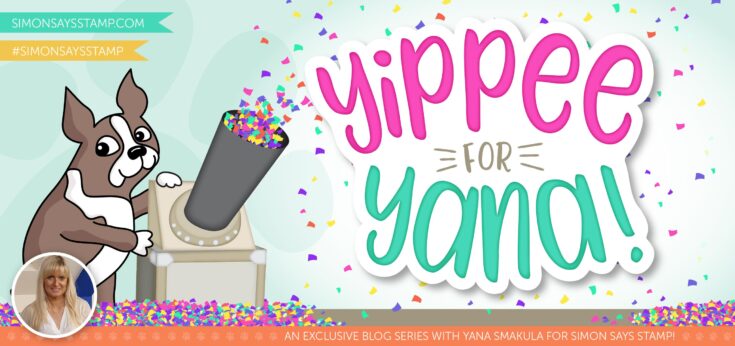
Hi friends! Please join me in welcoming back the oh-so-talented and amazing Yana Smakula! (Please note: our dear friend Yana is Ukrainian. To show support to our brothers and sisters in Ukraine, please see Yana’s post HERE.)
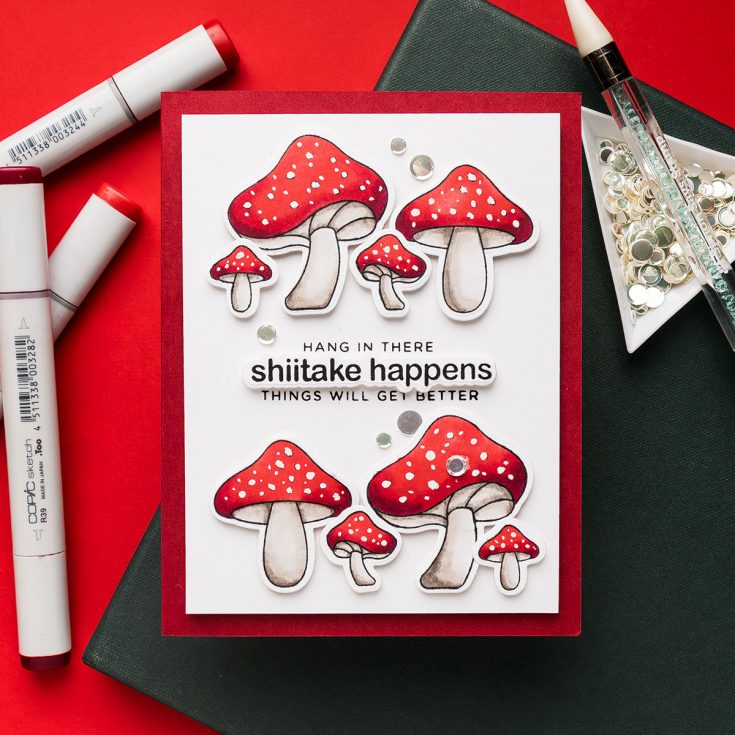
Hello, crafters, this is Yana Smakula for Simon Says Stamp! Welcome back for another Yippee
For Yana video! Today, I’m sharing a fun encouragement card featuring the cheeky and oh-so-
clever Oh Shiitake stamp set designed by the fabulous Cathy Zielske. This little set brought a
huge smile to my face the moment I saw it – and I hope it brings one to yours too!
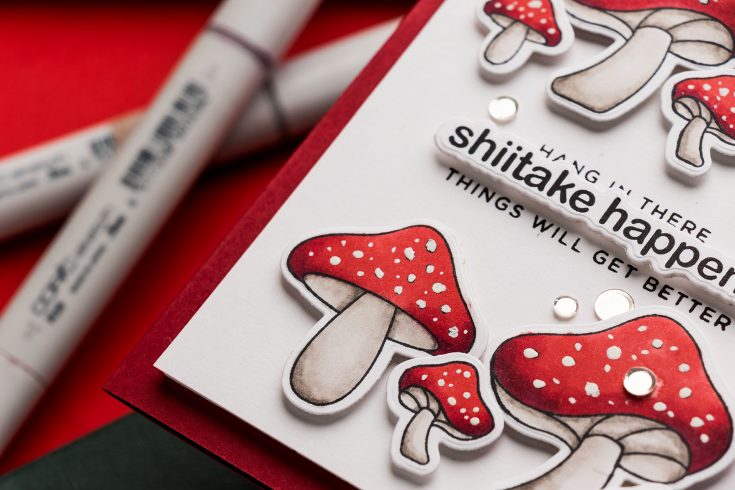
A Clever & Fun Design
The Oh Shiitake stamp set is full of charm, witty wordplay, and the cutest mushroom illustrations you’ve ever seen. It includes coordinating dies and layering stencils, making it perfect for a variety of coloring styles – whether you love your markers or prefer ink blending.
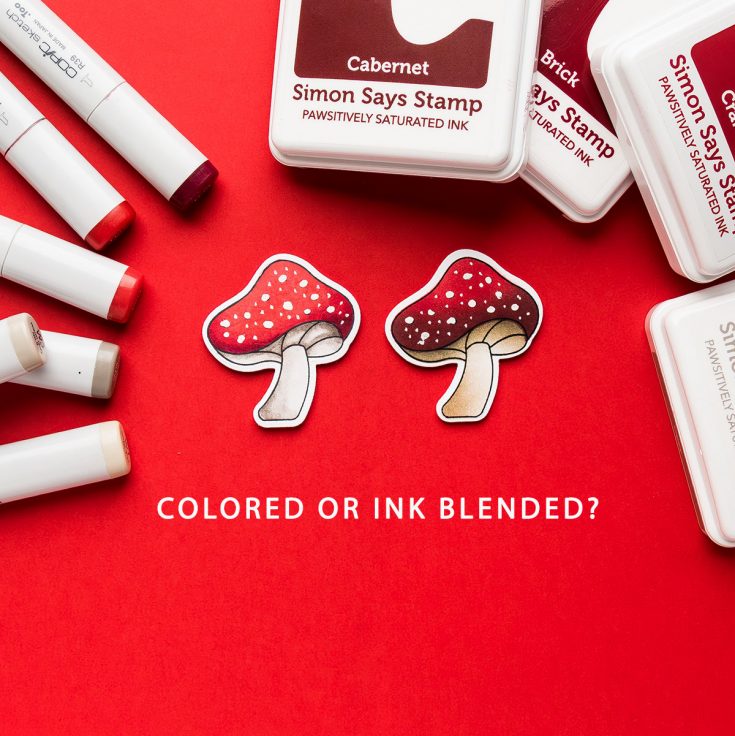
Coloring Mushrooms Two Ways
To start, I stamped a batch of mushroom images on Neenah Solar White 80lb cardstock – once in Memento Tuxedo Black Ink for Copic coloring, and again in VersaFine Clair for ink blending.
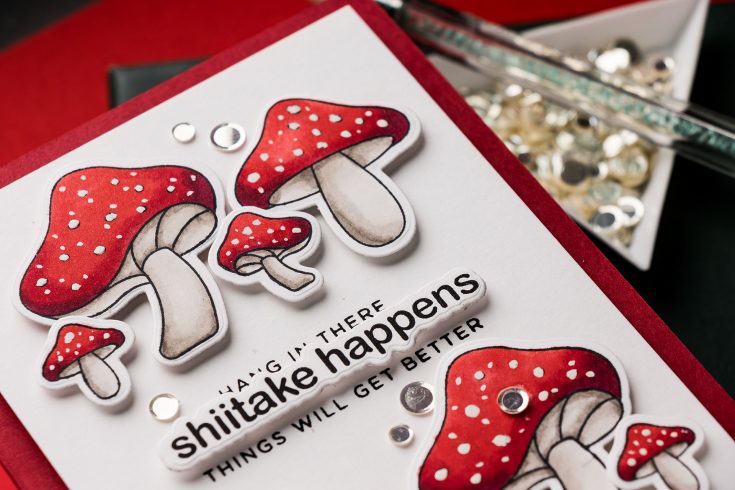
Copic Coloring:
I used warm gray Copics (W5, W3, W1) for the mushroom stems and classic reds (R39, R27, R24) for those vibrant caps. For the white speckles, I added details with Splatter White by Spellbinders using a fine detail brush. Tip: Let the white ink dry completely before die-cutting—trust me on this one!
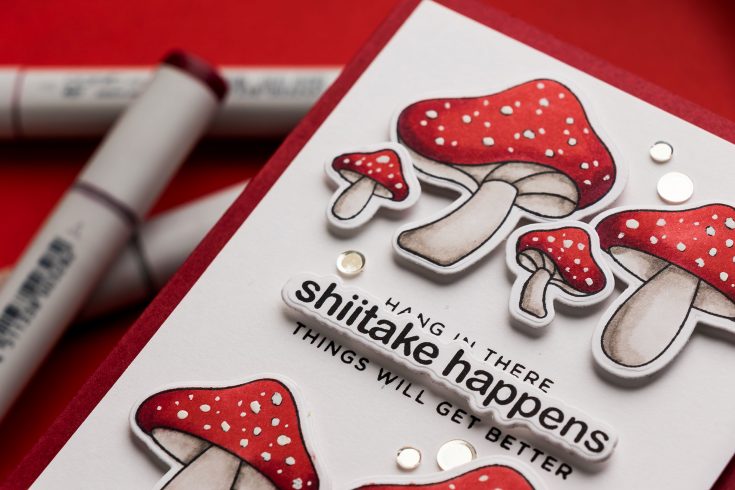
Ink Blending with Stencils:
The coordinating stencil set makes ink blending a breeze. I used Cranberry, Brick and Cabernet Simon Says Stamp Positively Saturated Inks on the mushroom caps and Fawn and Cozy for the stems. The Simon Tacky Mat held my cardstock and stencils perfectly in place, and a white Gelly Roll pen helped add little dots to the caps for extra texture.
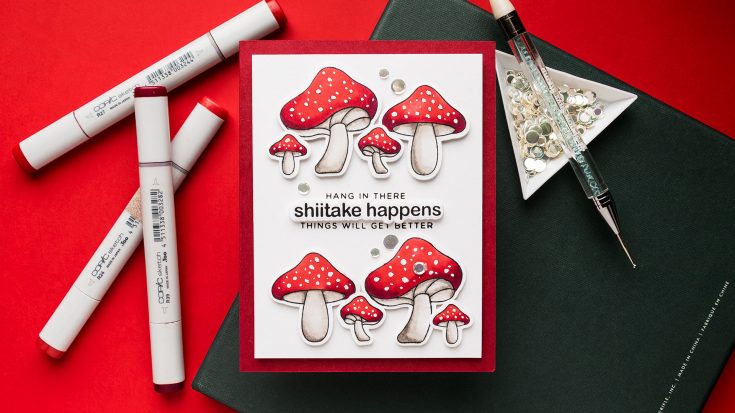
Assembly & Sentiment
Once all my mushrooms were colored and die-cut, it was time to build the card! I arranged them in a grid layout (a favorite design style of mine!) on a panel cut to 3.75” x 5”. The sentiment? A playful “Shiitake happens” paired with “Hang in there” and “Things will get better” – perfect for an uplifting and lighthearted card.
Everything was adhered with foam adhesive squares for dimension, and I popped the finished panel onto a Schoolhouse Red card base using Simon’s foam sheets.
I added a few sequins from the Cottontail embellishment mix to finish this card.
Thanks so much for stopping by today! I hope this project leaves you feeling inspired to try something new. Until next time, happy crafting!
WATCH THE VIDEO:

SUPPLIES:
|
Ways to support Ukraine:
If you are looking for ways to support Ukraine, we encourage you to visit this page on Yana’s blog:

Thanks so much for stopping by, and thanks to Yana for being our guest!
Satisfying Gradient Inking | Two-Tone Flow: Amore Laurafadora
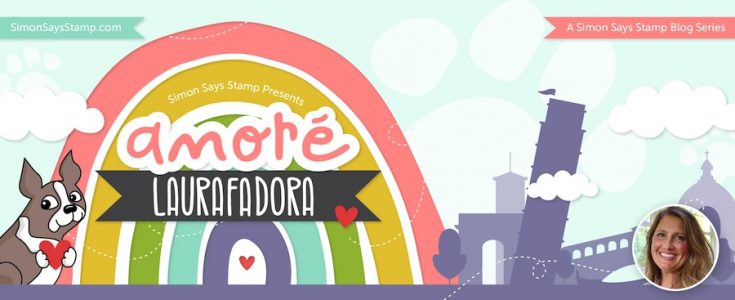
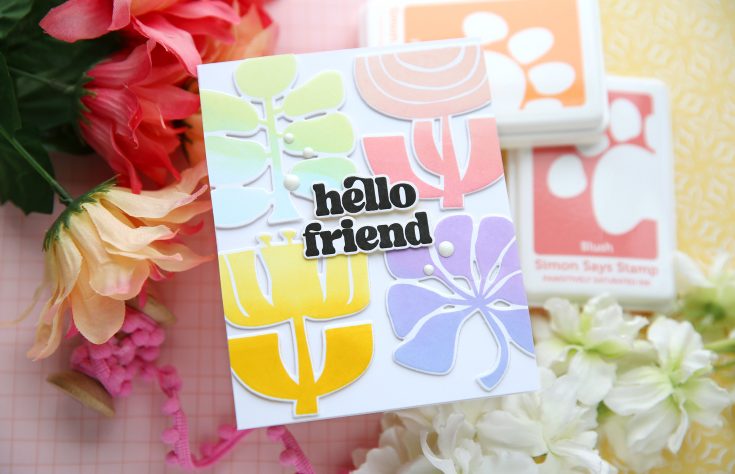
Hi friends! Happy Sunday Please join me in welcoming back special guest Laura Bassen to share this really eye-catching gradient two-toned technique that Laura is using our brand new Mod Plants stamp and die set from our exclusive Rain or Shine collection along with our Pawsitively Saturated inks to pack a punch! Give your sentiment the spotlight it needs with a crisp and gorgeous black ink like our Simon Says Stamp Versafine Nocturne ink, and for the final flourish the Waffle Flower Clean and Clear Enamel Dots look so pretty, don’t they? Be sure to watch the video for all the details and enjoy!
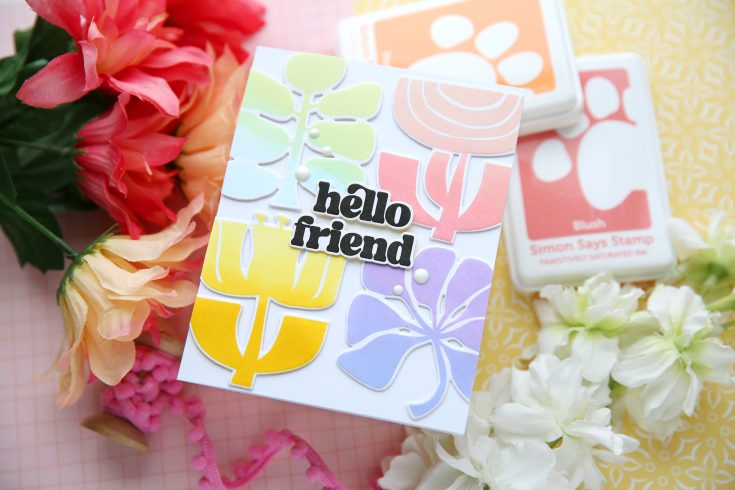
WATCH THE VIDEO:

SUPPLIES:
|
Thanks so much for stopping by, and thanks to Laura for being our guest!
Art Journaling Inspired by Collage Papers with Vicky Papaioannou
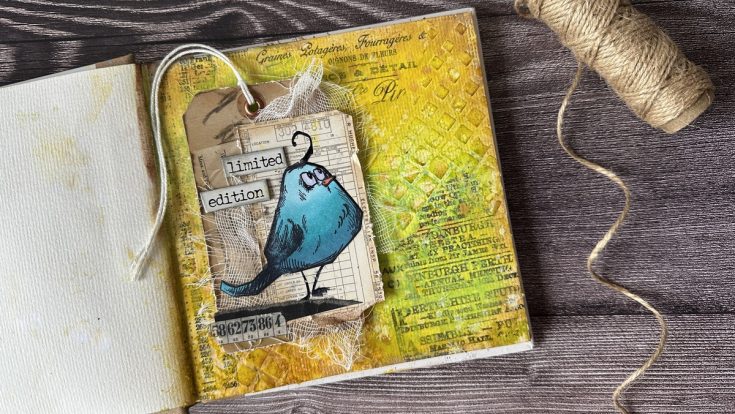
Hi friends! Happy Saturday! Please join me in a warm welcome back to a very special guest on our blog: Vicky Papaioannou! She’s delighting us once again with her magic touch to art journaling! For this particular installment she was inspired by the fabulous Tim Holtz idea-ology Serendipity Collage Papers (which were included in our very popular April 2025 card kit!) as well as bringing out some older favorites like the classic Tim Holtz Crazy Birds stamps and adding a fun sentiment with the Tim Holtz idea-ology Theories Quote Chips, as well as layering in some fun texture with the Tim Holtz idea-ology Collector Ephemera! Be sure to watch the video for all the details and enjoy!
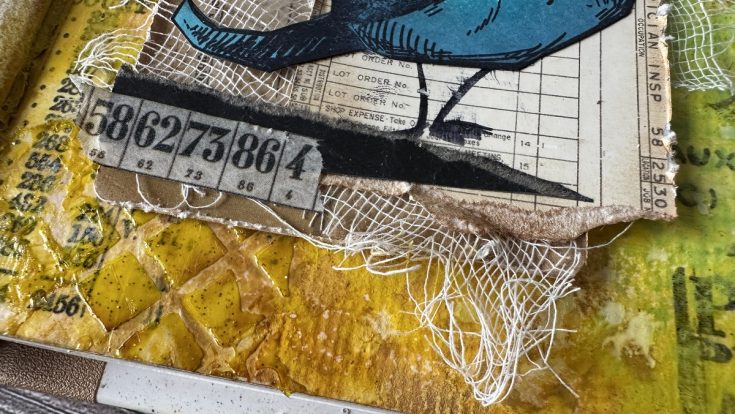
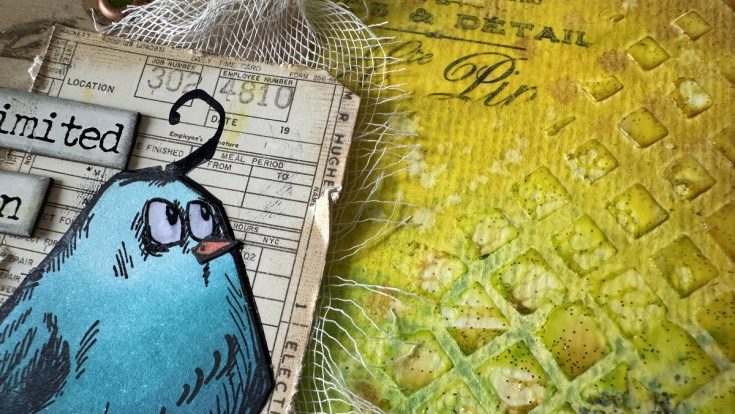
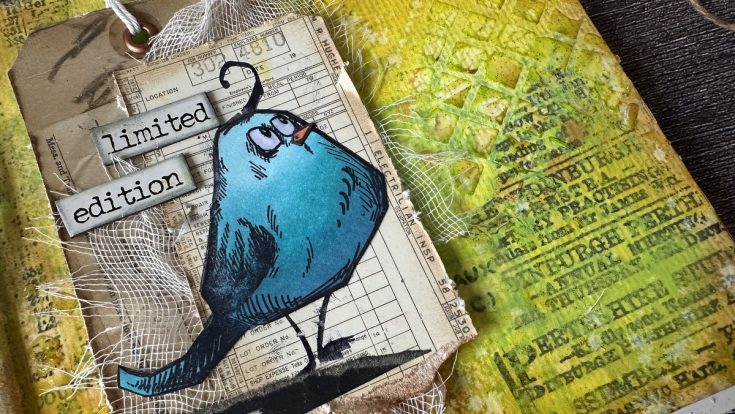
WATCH THE VIDEO:

SUPPLIES:
|
Thanks so much for stopping by, and thanks to Vicky for being our guest!
